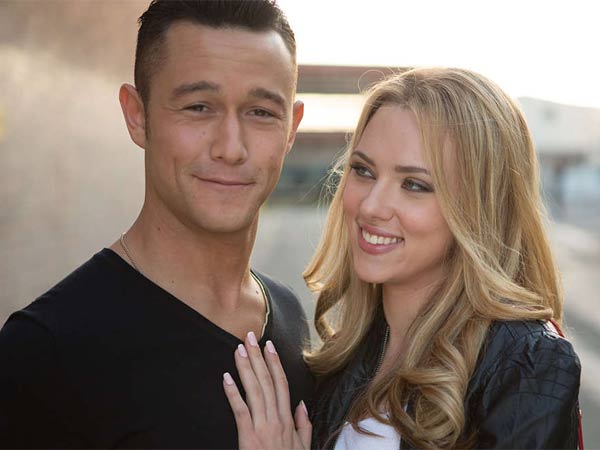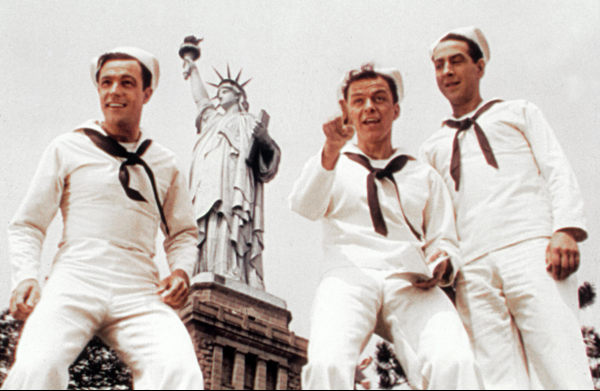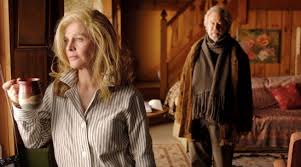It’s not unusual for critics and audience members of Cannes to react to films in somewhat animalistic ways. The “Cannes moo” has become almost synonymous with bored distaste, put into action when viewers are kind of outraged with a film but too lazy to voice anything really eloquent. It’s like a “meh” but with a little more gusto. Most recently and perhaps, most famously given the actor in question, Ryan Gosling’s directorial debut Lost River was received with the festival’s now infamous response. The film was overwhelmingly poorly received and for Gosling, at least, it looked like it was back to the drawing board. But was it really that bad? Whilst many critics couldn’t seem to hide their glee at the film’s multiple downfalls (of which, apparently, there were many), lots of others were angered because in brief moments, the film showed so much promise. What was clear was that, in his filming style, Gosling was overwhelmingly influenced by the directors with which he had worked and whom he admired and whilst Lost River was a bit of a Lynch-Refn-Malik mix up, it wasn’t entirely the actor’s fault.
When an actor turns director, one of two things will happen. They will either become a success, or they won’t. When it goes wrong, it seems to go very wrong, however and no amount of soft handed praise will work. What’s clear is that actors, much like young filmmakers, seem to be influenced by the hands of others and no matter their insistence that the film is their own vision, it tends to be indelibly marked by the visions of others. What makes the difference is whether or not the influencers are any good. Over the years, there have been countless actor “abdications” behind the camera and whilst not all have been great, a good few have held their own. But what are some of the most memorable? Read on and you will see.
Stanley Tucci
It wouldn’t be a film article if this guy didn’t get a mention and more than ever, it seems that Stanley Tucci is the cinematic figurehead du jour. Aside from his extensive and varied back catalogue as an actor, Tucci has taken his turn behind the camera from time to time. Whilst Tucci has directed only a few films, his work in the food classic Big Night is more than enough to make up for it. Focused on the make-or-break dinner party hosted by a failing restaurant, the film is as much a portrait of great acting relationships as it is food. Tucci captures the frenetic energy of the nighttime restaurant whilst never forgoing the intricacies of his characters.
Joseph Gordon-Levitt
Whilst Gordon-Levitt has only very recently dipped his toes into the directorial waters, it’s fair to say that it seems good things are to come. Unlike Gosling, who seemed to struggle to find his own voice, many have commented on the ease with which Gordon-Levitt made the transition from actor to director. His debut Don Jon tells the tale of a serial womaniser and Lothario who battles with a porn and sex addiction. Although the film was gently criticised for playing to Hollywood stereotypes it was, overwhelmingly, well received, posing an interesting take on men and fantasy.
Gene Kelly
Continuing the tradition of starring in and directing his own film, Gene Kelly straddled roles before and behind the camera for his 1949 musical comedy On the Town. Set in New York city over a period of 24 hours, the film follows three sailors who have a day’s leave and are intent on making every second count. Kelly’s work was cut out for him and when faced with the prospect of leading a film in multiple roles, it’s little surprise that he was credited as co-director alongside Stanley Donen, who choreographed the film. On the Town is largely credited as a game changer amongst musical cinema, incorporating real New York landmarks into the plot and placing the narrative much more firmly in a reality that the audience could recognise.
Clint Eastwood
Eastwood is probably remembered at the moment for his recent and controversial offering American Sniper and whilst the film is a solid offering in his filmography, it’s certainly not the director’s best work. Eastwood started his career behind the screen with Play Misty for Me, a tense psychological thriller which has been likened many times to Adrian Lyne’s Fatal Attraction. Although the film is very much a product of its era, leaving a bad smell of the late ‘80s in its wake, it has all the early makings of a great directorial piece.
Gary Oldman
Likening his move to directing to that of an author writing, Oldman explained that he didn’t want to make a movie for the sake of it but rather, because he had “a story [he] needed to get out”. Nil By Mouth is, more than anything, a cathartic and gut wrenching experience, indicative of a portion of Oldman’s own life. The film tells the grim tale of a working class family torn apart by alcoholism and drug addiction within its core. Nil By Mouth is the only feature for the actor to have released and based on its awards and accolades, was an overwhelming success. Whilst the actor continues to make extraordinary decisions in front of the camera, the question remains, when will he venture back into directing?
Sarah Polley
Of course, directing is not just a boy’s game and proving that she deserves a place on both sides of the camera is actress Sarah Polley. Adapted from Alice Munro’s short story The Bear Came Over the Mountain, Polley’s directorial debut (renamed Away From Her) is as devastating as it is affecting. Telling the quiet tale of a couple’s struggle with Alzheimer’s, the film put Julie Christie in her first film role for almost a decade, one which was met with widespread acclaim. Proof that knows her stuff, Away From Her is a great representation of the ability of the actor to bring out the best of others in their own game.




